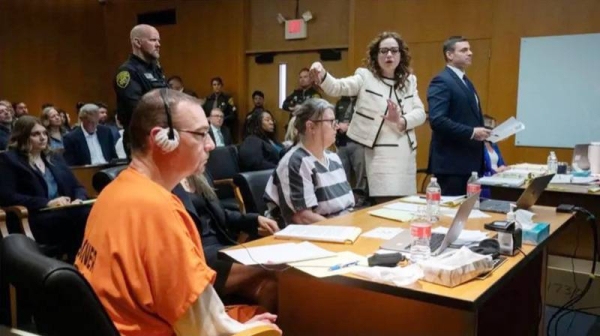
Chloe Beak lives with chronic, debilitating migraines that leave her unable to attend school for days at a time. But instead of receiving support from her school, her parents have been fined by the local authority for her truancy.
The family’s current fix is to send their daughter in with a migraine until she gets sent home, meaning her absences are registered as authorised. If they do not, the school will consider her a truant as it believes she has emotionally based school avoidance.
The Beaks are anticipating a further fine and worry they will have to take the matter to court to avoid risking a criminal record.
Her mother, Kerry Beak, said: “Me and my husband were so stressed out we just thought it would be easier to pay it. But £120 is a lot of money. We’ve been down every avenue with the school, but they’ve not really been a huge support. We’ve given so much evidence that it is a medical need. Chloe is bright. She’s not a truant, she wants to go to school and do well – that’s the hardest thing.”
Beak has had to give up her job as a dental nurse to bring Chloe home from school when she is unwell. “It’s very stressful as a parent. I think they need to give parents a bit more of a chance. It’s not considerate of what a child’s going through mentally or physically,” she said, adding that she was now on anxiety medication to help her cope.
Beak is one of many parents whose children have missed school due to mental or physical health problems, and have battled with their school over unauthorised absences amid wider pressure to improve attendance. In some cases, schools insist on diagnoses that can take years to obtain, or they assert that attendance will improve the pupil’s wellbeing, despite parents feeling differently, research by the House magazine has found.
Like Beak, some parents in England and Wales have fallen foul of a fast-track legal process known as the single justice procedure (SJP). Introduced in 2015, it handles about 40,000 cases a month, or approximately half of all prosecutions for less serious crimes such as speeding violations, non-payment of the licence fee and less serious truancy cases.
Under SJP, the courts write to defendants, giving them 21 days to respond. If the defendant pleads not guilty, the case goes to an open court. However, only about one-third of defendants respond, according to government data. This could be because they missed the letter, think it is easier to pay the fine, or there are administrative errors processing the response.
For cases that do not go to court, a magistrate typically has a very brief window of time with scant information – often not detailing any extenuating circumstances – to determine the outcome.
The Magistrates’ Association, which represents more than 12,000 magistrates in England and Wales, has said the SJP needs reform “if it is to be seen as fair and transparent”. Its members have said there are “flaws in the way it operates” and that this can “harm … some of society’s most vulnerable people”.
The association’s proposed solutions include requiring prosecutors to hear all pleas and mitigations from defendants before the cases are heard by the magistrate and eliminating time-pressured decisions.
Ellie Costello, the executive director of Square Peg, which campaigns for truancy law reform and works with 53,000 families who feel they have been unfairly prosecuted, said: “We’ve got families who don’t even know that they’ve been prosecuted. Families who open a letter to be told their case has been through the system, they’ve lost and have to pay £900 in costs and fines and have been put on community service.”
She added that in theory families whose children had special needs should be able to access support from the council that would exempt them from truancy laws, such as an education, health and care plan (EHCP) or alternative provision, but in practice there was such a backlog that these could take up to three years to obtain.
A Ministry of Justice spokesperson said: “Only uncontested and non-imprisonable offences are dealt with under the single justice procedure – magistrates are always assisted by a legally qualified adviser and defendants can choose to go to court if they want to.
“Sentencing decisions are made by the independent judiciary who consider the facts of each case including any mitigating circumstances. In any cases where a defendant was unaware of the proceedings taking place, they can make a statement to void them and start the process again.”












